-
 bitcoin
bitcoin $87959.907984 USD
1.34% -
 ethereum
ethereum $2920.497338 USD
3.04% -
 tether
tether $0.999775 USD
0.00% -
 xrp
xrp $2.237324 USD
8.12% -
 bnb
bnb $860.243768 USD
0.90% -
 solana
solana $138.089498 USD
5.43% -
 usd-coin
usd-coin $0.999807 USD
0.01% -
 tron
tron $0.272801 USD
-1.53% -
 dogecoin
dogecoin $0.150904 USD
2.96% -
 cardano
cardano $0.421635 USD
1.97% -
 hyperliquid
hyperliquid $32.152445 USD
2.23% -
 bitcoin-cash
bitcoin-cash $533.301069 USD
-1.94% -
 chainlink
chainlink $12.953417 USD
2.68% -
 unus-sed-leo
unus-sed-leo $9.535951 USD
0.73% -
 zcash
zcash $521.483386 USD
-2.87%
What are the developer tools of Ripple?
Ripple's developer tools, like the RippleX SDK and ILP, empower developers to build custom XRPL applications, connect different payment systems, and access real-time data.
Feb 19, 2025 at 01:30 am
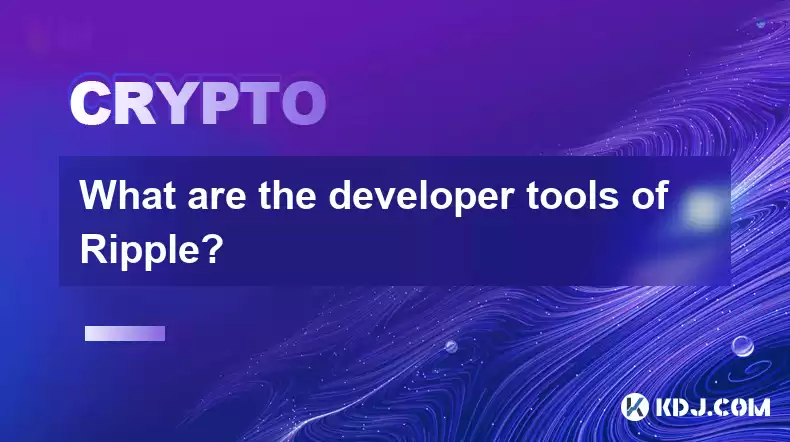
- Comprehensive overview of Ripple's developer tools, including their purpose and benefits
- Step-by-step instructions for using each tool, with detailed examples
- Analysis of the effectiveness and limitations of each tool
- Comparison of Ripple's tools with those offered by other blockchain platforms
- Future developments and roadmap for Ripple's developer tools
- Purpose: Provides a set of libraries and tools for interacting with the XRP Ledger (XRPL) and building XRPL applications
- Benefits: Allows developers to create custom wallets, exchanges, payment gateways, and other XRPL-based apps
How to Use:
- Install the SDK using your preferred programming language
- Connect to the XRPL using the provided client libraries
- Use the available methods and classes to interact with XRPL accounts, transactions, and data
- Effectiveness: Highly effective for building robust XRPL applications with custom functionalities
- Limitations: Requires knowledge of programming and the XRPL ecosystem
- Purpose: Enables the exchange of value and data across different blockchain networks and payment systems
- Benefits: Allows developers to build interoperable financial applications that can work with various currencies and protocols
How to Use:
- Implement the ILP client in your application
- Establish connections with other ILP-compatible systems
- Send and receive payments using the ILP protocol
- Effectiveness: Powerful for cross-border payments and connecting different financial systems
- Limitations: Requires understanding of the ILP protocol and its ecosystem
- Purpose: Provides access to real-time data from the XRPL, including account balances, transaction history, and network metrics
- Benefits: Enables developers to build applications that monitor the XRPL, track their own transactions, and analyze data for insights
How to Use:
- Sign up for a Ripple API key
- Authenticate your application using the API key
- Make API calls to retrieve data using HTTP requests or websockets
- Effectiveness: Essential for building data-driven applications and tracking XRPL activity
- Limitations: Only provides data from the XRPL, not from other blockchain networks
- Purpose: Acts as a decentralized registry for domains and payment addresses on the XRPL
- Benefits: Allows developers to map human-readable domains and addresses to XRPL accounts, making transactions more convenient and secure
How to Use:
- Register a domain or address in the RGD
- Associate the domain or address with an XRPL account
- Use the RGD API or library to resolve domains and addresses
- Effectiveness: Enhances the user experience for payments and other XRPL interactions
- Limitations: Does not support all domain or address types
- Purpose: A custom virtual machine for executing Ripple contracts and XRP Ledger applications
- Benefits: Provides a secure and immutable environment for running smart contracts on the XRPL
How to Use:
- Develop your contract or application using the AMF language
- Publish your contract or application to the XRPL
- Interact with the AMF environment using the client library
- Effectiveness: Enables the creation of sophisticated XRPL applications with custom logic
- Limitations: Currently in development and subject to changes
- What is the primary programming language for Ripple's developer tools?
- RippleX SDK and Ripple AMF use Java, Python, Go, C++, and JavaScript.
- How can I learn more about Ripple's developer tools?
- Visit the Ripple Developer Hub, attend workshops, or join online communities.
- What are the future plans for Ripple's developer tools?
- Expanding AMF capabilities, integrating with other blockchain platforms, and improving user experience.
- Are there any alternatives to Ripple's developer tools?
- Stellar SDK, Hyperledger Fabric, Ethereum Web3.js.
Disclaimer:info@kdj.com
The information provided is not trading advice. kdj.com does not assume any responsibility for any investments made based on the information provided in this article. Cryptocurrencies are highly volatile and it is highly recommended that you invest with caution after thorough research!
If you believe that the content used on this website infringes your copyright, please contact us immediately (info@kdj.com) and we will delete it promptly.
- Crypto Crash, Coinbase CEO, and Richest Ranking: A Regulatory Rumble Rocks Digital Fortunes
- 2026-02-12 03:40:02
- LayerZero's Zero Layer Lands on Wall Street, Igniting Institutional Interest
- 2026-02-12 04:30:02
- Crypto VCs at Consensus Hong Kong: A 15-Year Game Amidst Market Recalibration
- 2026-02-12 04:25:01
- Polymarket Faces Lawsuit as Prediction Markets Navigate Regulatory Minefield and Innovation Boom
- 2026-02-12 04:20:02
- Standard Chartered and B2C2 Forge Alliance for Enhanced Crypto Access
- 2026-02-12 04:20:02
- Crypto Founder's Alleged Staged Death Sparks Major Class Action, Exposing Digital Deceit
- 2026-02-12 04:10:02
Related knowledge
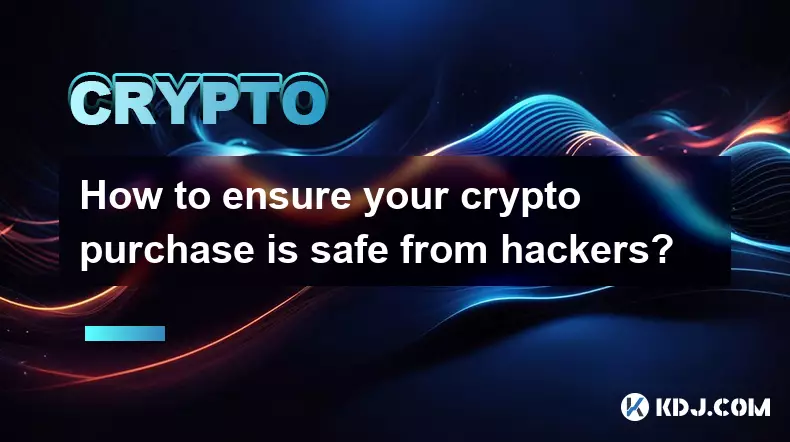
How to ensure your crypto purchase is safe from hackers?
Jan 28,2026 at 11:19pm
Secure Wallet Selection1. Choose hardware wallets for long-term holdings—devices like Ledger and Trezor isolate private keys from internet-connected s...
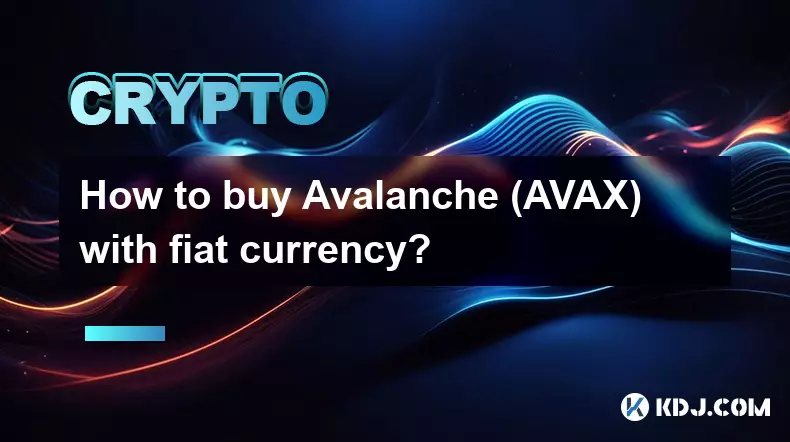
How to buy Avalanche (AVAX) with fiat currency?
Jan 29,2026 at 12:40pm
Choosing a Reliable Exchange Platform1. Identify exchanges licensed in your jurisdiction that support AVAX trading pairs with major fiat currencies li...
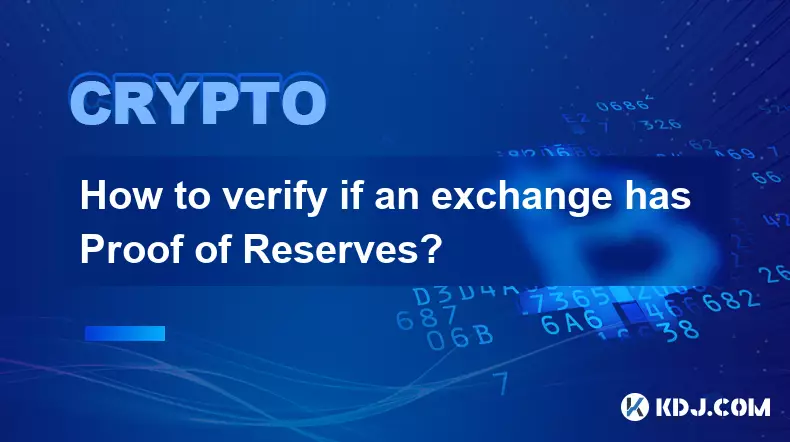
How to verify if an exchange has Proof of Reserves?
Jan 30,2026 at 06:39am
Understanding Proof of Reserves1. Proof of Reserves (PoR) is a cryptographic audit mechanism that demonstrates an exchange holds sufficient on-chain a...
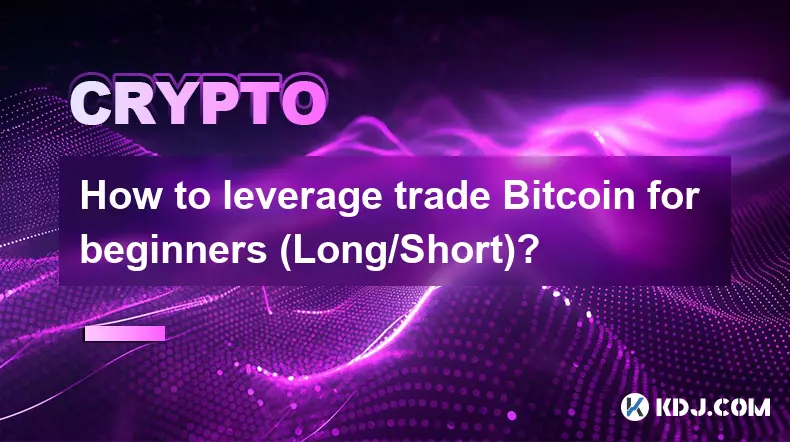
How to leverage trade Bitcoin for beginners (Long/Short)?
Jan 29,2026 at 03:19pm
Understanding Bitcoin Price Movements1. Bitcoin’s price is heavily influenced by macroeconomic indicators such as interest rate decisions, inflation d...
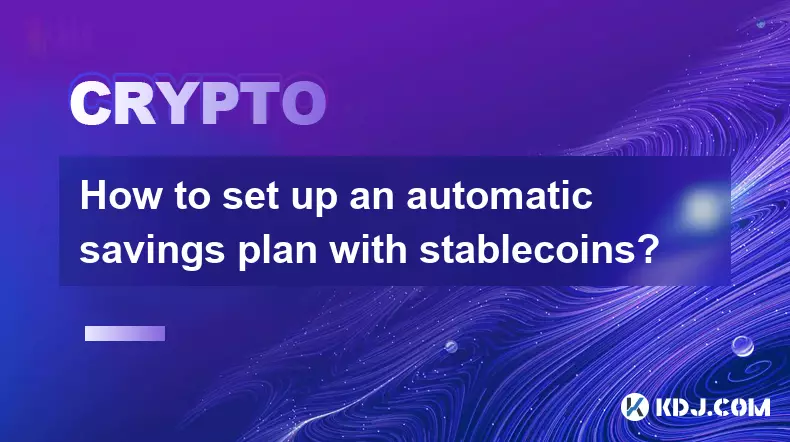
How to set up an automatic savings plan with stablecoins?
Jan 29,2026 at 06:39am
Understanding Stablecoin Savings Mechanics1. Stablecoins are digital assets pegged to fiat currencies like the US dollar, designed to minimize volatil...
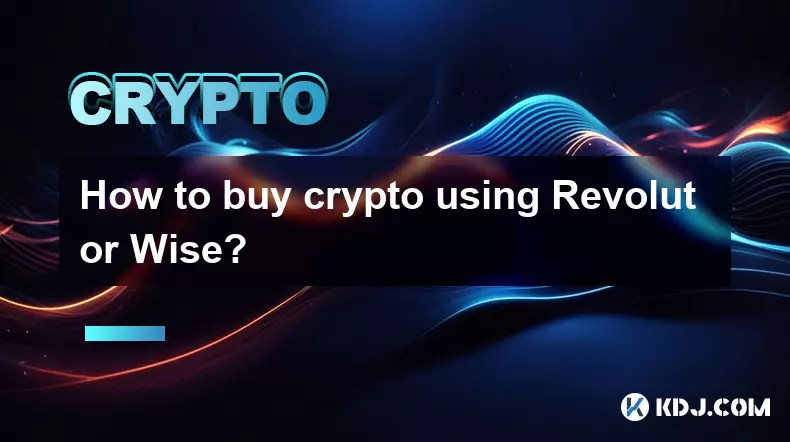
How to buy crypto using Revolut or Wise?
Jan 28,2026 at 11:00pm
Setting Up Your Revolut Account for Crypto Purchases1. Download the Revolut app and complete identity verification using government-issued ID and a se...

How to ensure your crypto purchase is safe from hackers?
Jan 28,2026 at 11:19pm
Secure Wallet Selection1. Choose hardware wallets for long-term holdings—devices like Ledger and Trezor isolate private keys from internet-connected s...

How to buy Avalanche (AVAX) with fiat currency?
Jan 29,2026 at 12:40pm
Choosing a Reliable Exchange Platform1. Identify exchanges licensed in your jurisdiction that support AVAX trading pairs with major fiat currencies li...

How to verify if an exchange has Proof of Reserves?
Jan 30,2026 at 06:39am
Understanding Proof of Reserves1. Proof of Reserves (PoR) is a cryptographic audit mechanism that demonstrates an exchange holds sufficient on-chain a...

How to leverage trade Bitcoin for beginners (Long/Short)?
Jan 29,2026 at 03:19pm
Understanding Bitcoin Price Movements1. Bitcoin’s price is heavily influenced by macroeconomic indicators such as interest rate decisions, inflation d...

How to set up an automatic savings plan with stablecoins?
Jan 29,2026 at 06:39am
Understanding Stablecoin Savings Mechanics1. Stablecoins are digital assets pegged to fiat currencies like the US dollar, designed to minimize volatil...

How to buy crypto using Revolut or Wise?
Jan 28,2026 at 11:00pm
Setting Up Your Revolut Account for Crypto Purchases1. Download the Revolut app and complete identity verification using government-issued ID and a se...
See all articles










































































